App Store Ads Look Like Organic Results Now. How Can ASO Still Work?






Explore how app ratings and reviews boost conversion rates, enhance visibility, and drive organic traffic in the competitive mobile app market. Learn ASO strategies for success.
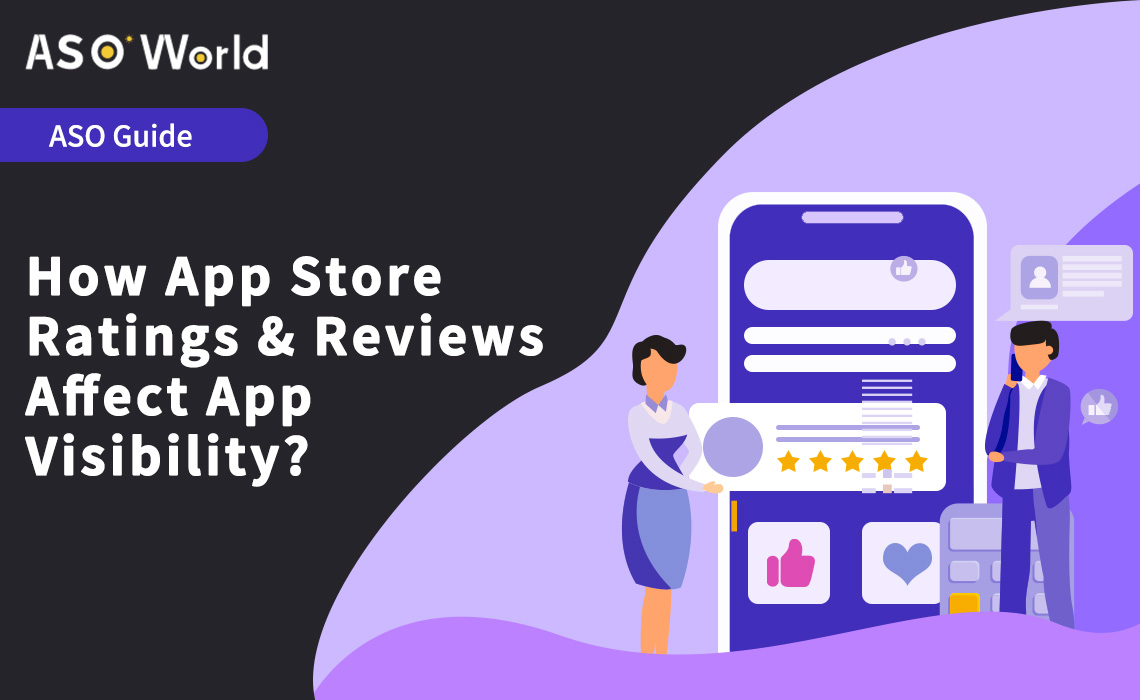
In the crowded world of mobile apps, making your app stand out is tough.
Our research has shown than about 80% of mobile users consider app ratings when deciding whether or not to download an app. So, don't underestimate the importance App Ratings & Reviews on users' decision-making processes.
In addition, based on App Store and Google Play Store Algorithm, Ratings & Reviews serve as key motivators for user conversion and influencing app stores' selection of high-quality apps, which can directly influence App Ranking.
For these important reasons, people who specialize in ASO (App Store Optimization) should focus on user feedback when planning app marketing strategies.
This blog post will explain the mechanics behind app ratings by following sections:
Definition in app marketing
Differences between App Store and Google Play
Importance and Impacts in app marketing
App ratings are the average score of all the star ratings an app has received, with 5 stars being the highest score. They serve as a quick indicator of an app's overall quality and user satisfaction. Learn More ➔
App Store Reviews are the feedback left by users on an app's download page within an app store, such as the Apple App Store or Google Play Store. These reviews typically include a star rating, ranging from one to five stars, and a written description of the user's experience with the app. Learn More ➔
Version-Based Rating System:
In the Apple App Store, developers encounter a unique system where each app version can be rated independently.
When an update is rolled out, they have the discretion to reset their rating scores.
This option serves as an opportunity for apps to recover from previously poor ratings by starting anew with each significant update.
To facilitate user engagement without disrupting the user experience, iOS utilizes native dialog boxes that prompt users for ratings or reviews directly within the app interface.
The integration of this feature is made possible through Apple's SKStoreReviewController API, which simplifies the process for both developers and users.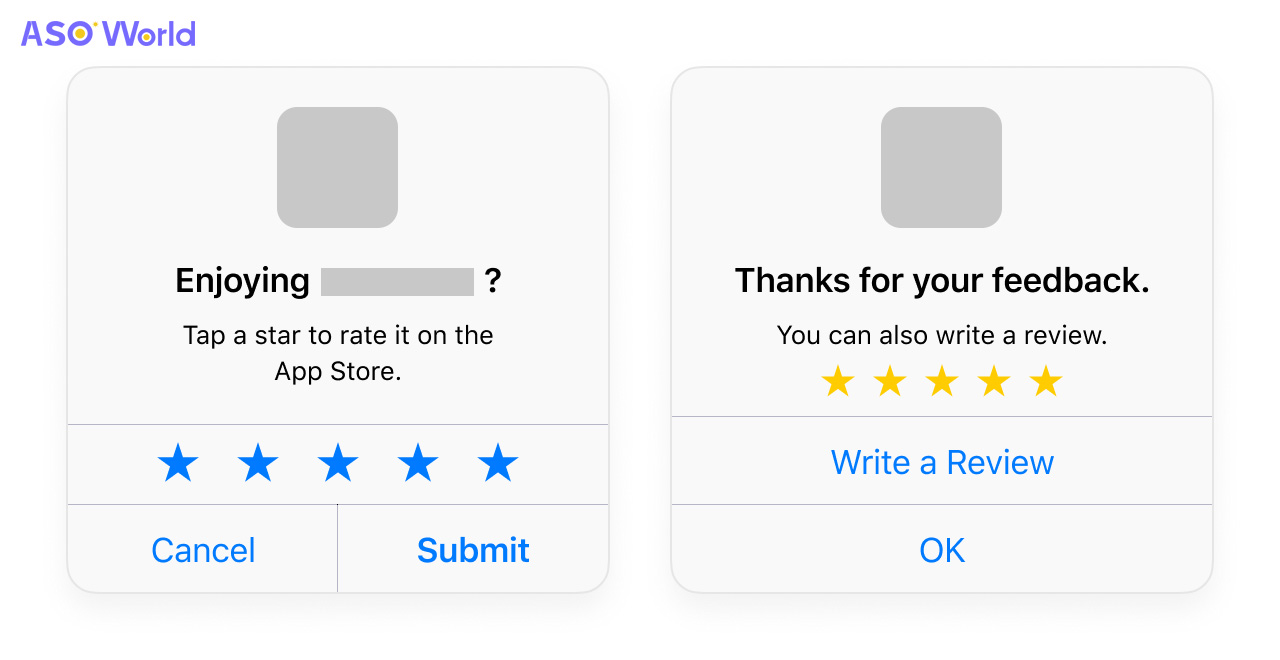
Accumulative Rating Approach:
The Google Play Store adopts a different stance on app ratings; it aggregates them over the lifetime of an app.
This cumulative approach does not allow resetting of ratings with new updates unless under exceptional circumstances acknowledged by Google.
Such a policy incentivizes developers to focus on long-term quality and consistency across all versions of their app.
Google Play In-app Review API:
Similar to its counterpart, Android provides mechanisms for prompting users to rate or review apps without leaving the application.
However, these prompts are managed via Google's own Google Play In-app Review API, offering a distinct method compared to Apple's implementation.
Developers can respond publicly to reviews on both platforms; however, responses in Google Play are indexed by search engines due to its web accessibility nature—potentially increasing SEO value for apps outside of just ASO considerations.
Responses from developers can influence future reviews given by users who notice developer engagement – this dynamic exists similarly across both ecosystems.
Both storefronts likely factor in recency alongside volume when weighing review impact on discovery algorithm:
>>> App Store Ranking Algorithm 2023: iOS App Store vs. Google Play Store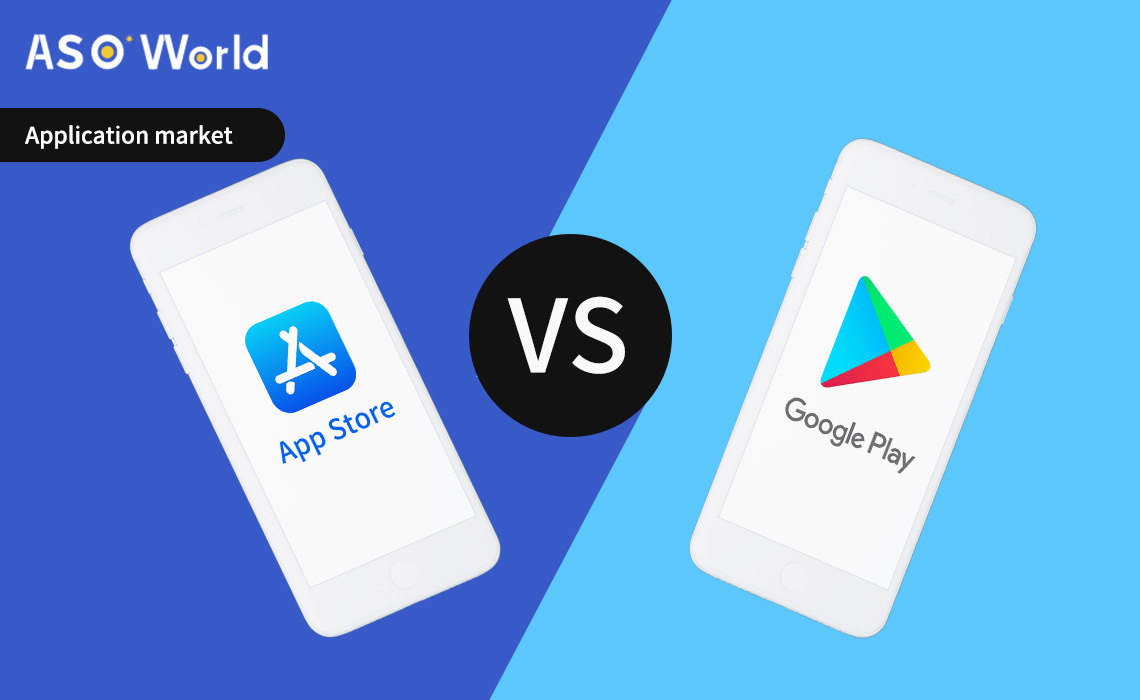
App ratings and reviews are essential indicators of user satisfaction and can greatly influence potential users' decision to download an app.
Positive App Ratings & Reviews can significantly boost an app's download likelihood, directly influencing its Conversion Rate.
Data indicates that user experience and conversion are closely linked with App Ratings & Reviews:
"Enhancing an app's rating from 3 to 4 stars can potentially boost conversions by up to 90%."
"Approximately 80% of users consider ratings and reviews as reliable guides prior to downloading apps."
"Nearly 70% of app store visitors form a positive view of brands rated between 4 and 5 stars."
The app's ratings and reviews are also crucial for its marketplace ranking, with platforms like Google Play and the Apple App Store employing sophisticated algorithms that consider downloads, ratings, and user feedback to determine an app's position.
>>> Related Reading: App Store Ranking Factors that You Need to Know: Is App Store Ranking Based on The Number of Downloads? 
Apps with higher ratings and positive reviews are more likely to appear higher in search results and recommended app lists. Some data into our eyes as below:
App rating score: Most Top apps which with high category rankings have star ratings greater than 4.0.
Ranking algorithm in App Store: Both iOS and Google Play tend to feature apps with ratings higher than 4.0. If your app has a low rating, it is unlikely to be featured, limiting its potential visibility.
App category ranking: Since category ranking is based on app downloads, a better conversion rate on downloads and installs will benefit your app category ranking.
Keywords ranking & searching traffic: About 70% of visitors find their desired app by searching a certain keyword. The conversion rate of app downloads will influence your keyword ranking in search results.
Visibility & organic traffic: An app with more keywords being ranked well means higher visibility, also more organic traffic in this way.
We previously stated that visitors are willing to download an app with higher ratings and positive reviews including helpful content.
How the ratings and reviews of your app impact on the app growth?
Keyword visibility
Brand trust and download conversion rate
app downloads acquisition and ranking algorithm
Opportunity to get recommendations on the app store
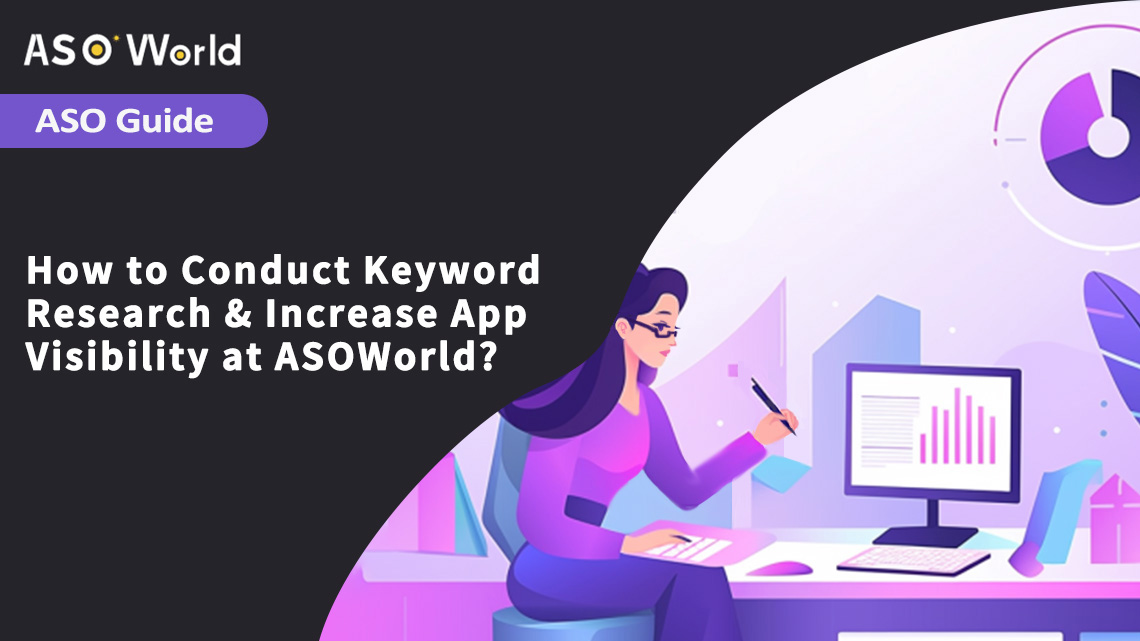
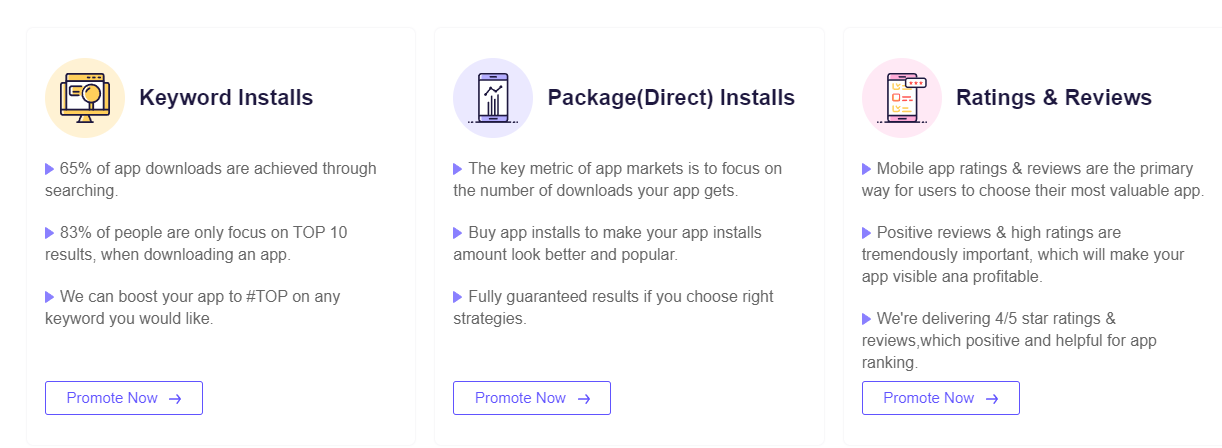
* Grow with our app growth solutions - choose a Guaranteed Keyword Ranking Service for the TOP 5 app ranking acquirement, and maximize your app traffic. Or click the "Promote Now" above (to increase app installs service for app visibility).
Given that an app's ratings and reviews have a direct impact on conversion, and a low conversion rate means a negative impact on your keyword and category rankings, ASA strategy, and ability to be featured, also means fewer app downloads acquisition and poor ranking capability.
According to our research, an app with a poor rating score of fewer than 4 stars, will not be featured on the iOS app store and will not be included in Google Play's featured app list. A quick glance at each app featured on Google Play's "Editors' Choice Apps" page reveals that they all have a star rating of 4.3 or higher.
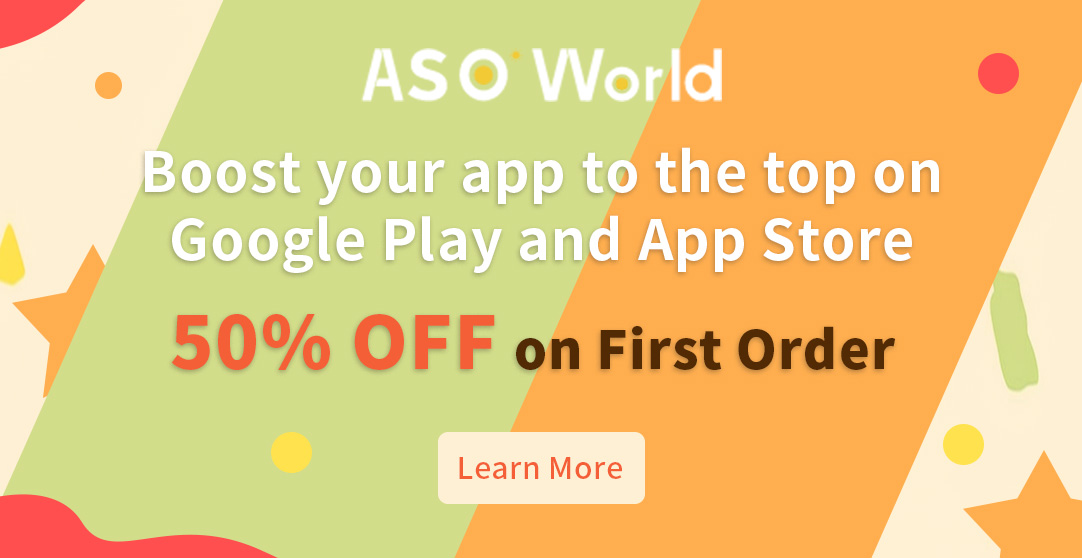 Click "Learn More" to drive your apps & games business with the ASO World app promotion service now.
Click "Learn More" to drive your apps & games business with the ASO World app promotion service now.To summarize, it is critical to constantly monitor, analyze, and work to improve the rating and reviews of your app together an effective ASO strategy.
In general, having a positive rating score will make it much easier to reach your app's visibility potential and ASO goals!

Get FREE Optimization Consultation
Let's Grow Your App & Get Massive Traffic!
All content, layout and frame code of all ASOWorld blog sections belong to the original content and technical team, all reproduction and references need to indicate the source and link in the obvious position, otherwise legal responsibility will be pursued.